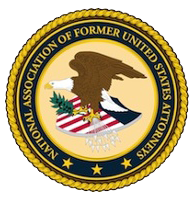When Retaliation Strikes: Protecting Whistleblowers’ Rights
As a whistleblower, you have the right to report tax fraud, and it's important to do so for the good of society. But what happens if you're retaliated against for doing the right thing?
Our firm understands how scary it can be to come forward and report fraud. That's why we want you to know that you have rights and protections under South Carolina law. We also have reliable whistleblower retaliation lawyers ready to fight for you if you experience retaliation.
What is a Whistleblower?
Whistleblowers are individuals who report illegal or unethical conduct by their employers or others, and they play a crucial role in holding wrongdoers accountable.
Many potential whistleblowers can be apprehensive about taking on the role for fear of retaliation. Employers may retaliate against the whistleblower and use their power to put whistleblowers at a disadvantage.
Whistleblower Retaliation Examples
Whistleblower retaliation can take many forms, such as losing your job, being demoted, or being harassed at work. But you don't have to suffer in silence. You can fight back with the help of our experienced attorneys.
At the McCoy Law Group, we have extensive experience
representing whistleblowers who have faced retaliation.
Contact us today for a free consultation to discuss your case and learn how we can help you. Remember, as a whistleblower, you have rights and protections under the law, and we are here to help you assert them.
The South Carolina False Claims Act
In South Carolina, whistleblowers who report tax fraud or other misconduct are protected under the South Carolina False Claims Act (SCFCA). This law allows individuals to file lawsuits on behalf of the government to recover funds lost due to fraud and provides strong protections for whistleblowers who report such fraud.
In South Carolina, you also have both common law protections and statutory protections as a whistleblower. This means that if you're retaliated against, you may be able to sue your employer for damages. Additionally, you may be able to file a complaint with the
Occupational Safety and Health Administration (OSHA) or the
South Carolina Human Affairs Commission (SCHAC) for relief.
In addition to state law protections, there are also federal claims available to whistleblowers. The False Claims Act (FCA) is a federal law that provides protection to whistleblowers who report fraud against the federal government. The FCA allows individuals to file lawsuits on behalf of the government and provides rewards to whistleblowers who bring successful claims.
If you're a federal employee, you're also protected by the Whistleblower Protection Act (WPA), which prohibits retaliation against federal employees who report wrongdoing.
How Can an Attorney Help?
If you have experienced retaliation as a whistleblower, it is important to contact an attorney with experience in whistleblower protection. An experienced attorney can help you in several ways.
An attorney can guide you in understanding your rights under the law and the legal options available to you. An attorney can assist you in filing a complaint or lawsuit against your employer, and represent you in court if necessary.
Emotional and mental support is crucial during what can be a stressful and difficult time. They can also help protect you from further retaliation by taking steps such as requesting a restraining order or seeking an injunction.
Our attorneys can help you recover damages for any harm you may have suffered as a result of the retaliation. This can include compensation for lost wages, emotional distress, and any other damages incurred.
Get Strong Legal Support to Fight Retaliation
If you've experienced retaliation for blowing the whistle, don't hesitate to contact McCoy Law Group. We're here to help you understand your rights and options, and we'll fight tirelessly to protect you from further harm.
Remember, reporting fraud is the right thing to do, and you don't have to face the consequences alone. We're here to support you every step of the way.













